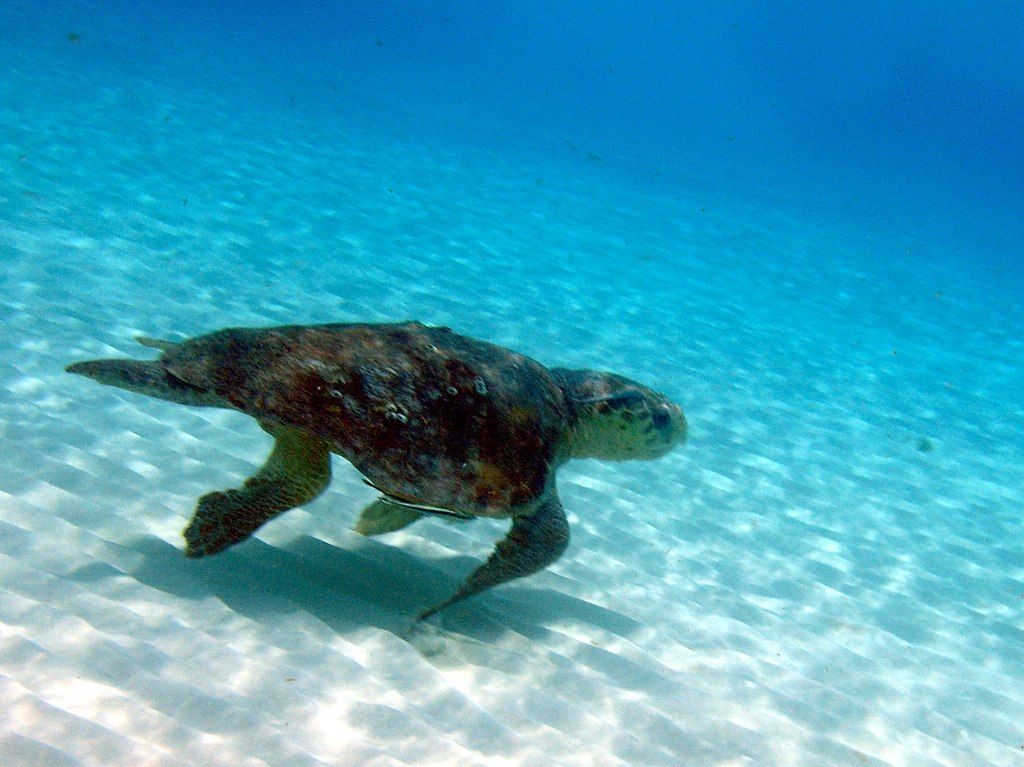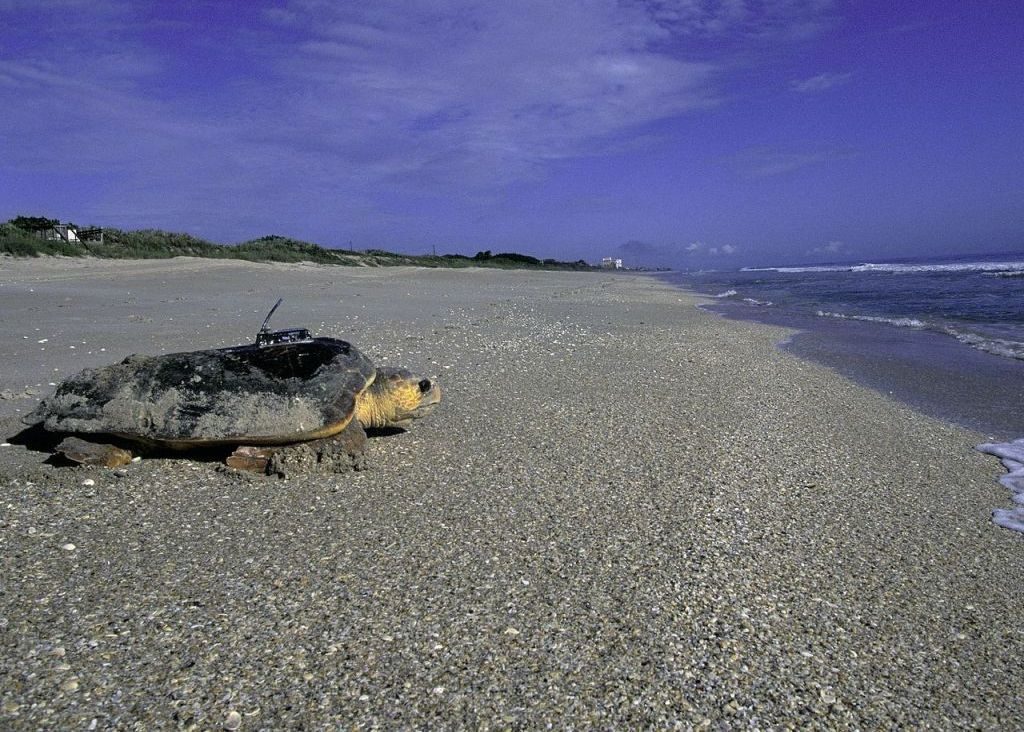
Loggerhead sea turtles (Caretta caretta) live underwater but must surface to breathe and walk up the beach to lay their eggs. They’re vulnerable to extinction due to loss of nesting habitat, fishing bycatch and vessel strikes. Scientists also wondered: Do tropical storms pose risks for adult sea turtles?
In June 2012 just before Tropical Storm Debby began to spin off of Florida’s Gulf coast, scientists tagged a loggerhead sea turtle with a GPS tracking device. Nicknamed Eleanor, she laid eggs on the beach and returned to the sea near Sarasota. Then the storm arrived.
Would the storm hurt Eleanor? They watched her for clues.

Before the storm Eleanor saved energy for her next egg-laying excursion by resting on the seabed and only moving when she surfaced for air.
When Tropical Storm Debby arrived, Eleanor was caught in it and swept north by its current. The storm churned for four days with sustained wind speeds of 65 mph. Eleanor was active the entire time.

Instead of resting she swam, dove, and surfaced. Amazingly, this used no more energy than she would have expended on producing 2% of her next set of eggs. Meanwhile the storm pushed her 62 miles (100 km) north of her nesting beach.

When the storm was over, Eleanor swam south, found her nesting beach, and laid her next clutch just 250 feet (75 m) from her last one.

The study concluded that tropical storms don’t pose much risk to adult sea turtles like Eleanor.
Unfortunately, as researcher Maria Wilson pointed out, “Sea turtle nests are extremely vulnerable to passing storms. The storm that Eleanor easily survived destroyed almost 90% of nests on the beach where she and several hundred other female turtles had laid their eggs.”
The study concluded that when it comes to protecting seas turtles we should focus on protecting nests and helping newly hatched turtles. We don’t need to worry about the adults. They can ride out the storms.
Read more in this article at Science Daily. Note: These are not photos of Eleanor.
(photos from Wikimedia Commons; click on the captions to see the originals.)
Thank you for the great article!
thank you for the truly informative article.
Loved this Kate. 🙂